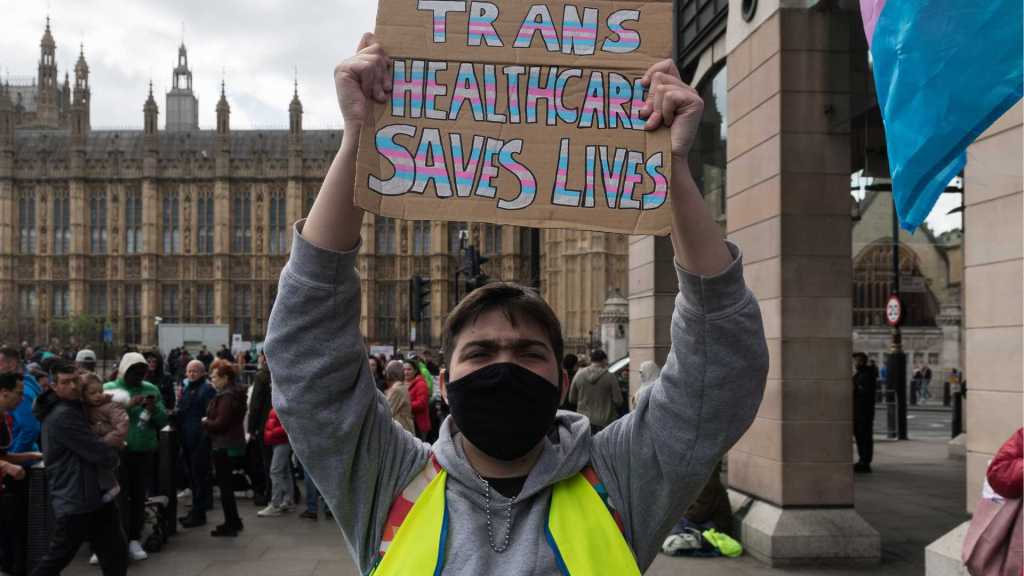Campaigners have warned of a “staggering increase” in the number of GPs denying hormone replacement therapy (HRT) to transgender patients.
HRT broadly refers to several hormone therapies, including oestrogen, progesterone, or testosterone. It is used by some trans and non-binary people as part of gender-affirming healthcare.
Feminising HRT increases breast tissue size, makes body hair lighter and softer and decreases testosterone levels while masculinising HRT can stop periods, deepen the voice and make body hair appear thicker and darker. But the treatment is also prescribed to cis people to manage menopausal symptoms.
However, Cis patients seem to find it much easier than trans men and women to get treatment.

During the past year, there have been a number of reports of GPs refusing to prescribe HRT to trans patients – including those who had been getting it for years – in the wake of the Cass Report and UK Supreme Court ruling on the legal definition of “sex”.
Last October, TransActual published a report detailing how 215 individuals had been refused a prescription for hormones. The results, shared with QueerAF and What The Trans, who had both carried out a broader investigation, showed that more than a quarter of them had a recommendation from an NHS gender clinic. Forty-five per cent of those had been on HRT for more than five years.
The main reasons given by GPs for refusing to prescribe the medication were “lack of training and perceived lack of competence, no policy requirement or personal beliefs,” according to the research.
And in July of this year, a Healthwatch survey highlighted the stark state of trans healthcare in the UK, with patients having to overcome significant “hurdles” to access care and experiencing misgendering, disruptions to prescriptions, and a loss of access to NHS records after changing their gender markers.
The survey of almost 1,400 trans and non-binary adults, showed that only 32 per cent of those who responded rated their GP’s gender-affirming care as good or very good.

It also revealed that just 30 per cent of transgender and non-binary adults had experienced no disruptions to their HRT prescriptions at any point.
PinkNews reported in December that Jubilee Park Medical Partnership, which runs various practices in the East Midlands, announced it would stop prescribing HRT to all trans patients. Those who were on the treatment at the time were told their prescriptions had been withdrawn, a move that brought criticism and a protest organised by Nottingham Against Transphobia which branded the decision “deeply misguided”.
One 29-year-old trans woman told PinkNews she had been left “terrified” by the news.
“I have already been suffering from the worst anxiety I’ve had in many years just worrying about losing my HRT,” she said. “I can’t imagine that being forced to detransition, by losing access to oestrogen and my testosterone blocker, will do anything but plunge me into the worst mental state of my life.”
Meanwhile, TransActual director Chay Brown told The Independent that the organisation had seen a “staggering increase” in the number of trans people being denied HRT by their GPs since spring 2024.

“It continues to be a problem,” he said. “Trans people being denied the very same medication that cis[gender] people are given without question. Many of the refusals are for people already on HRT.
“There are many reasons for this, ranging from GPs claiming they are ‘not competent,’ are not contracted to provide this service, and, in an unknowable number of cases, out of good old-fashioned bigotry. It is rarely the case that there is a medical reason for refusal.”
Brown went on to say that in previous years TransActual would only hear of occasional cases of care being denied but it was now a weekly occurrence.
“Those are just the ones we are hearing about,” he said. “Trans people often wait years to be seen by an NHS gender clinic. For their GP to then refuse to prescribe officially recommended medication is an extra slap in the face.”
An NHS spokesperson said in a statement provided to The Independent: “To support GPs in prescribing for patients with gender dysphoria, NHS England has established a number of specialist gender services in primary care, staffed by specialist GPs who are available to provide timely support to colleagues.
“We are currently carrying out a review of adult gender services, which will look at how to overcome the challenges that some individuals face in accessing a timely prescription.
“We have also more than doubled investment in gender dysphoria services, increasing the number of adult clinics in England from seven to 12 since July 2020, with the rollout of five new… pilot clinics.”
Share your thoughts! Let us know in the comments below, and remember to keep the conversation respectful.
The post Campaigners warn of ‘staggering increase’ in number of GPs denying HRT to trans patients appeared first on PinkNews | Latest lesbian, gay, bi and trans news | LGBTQ+ news.